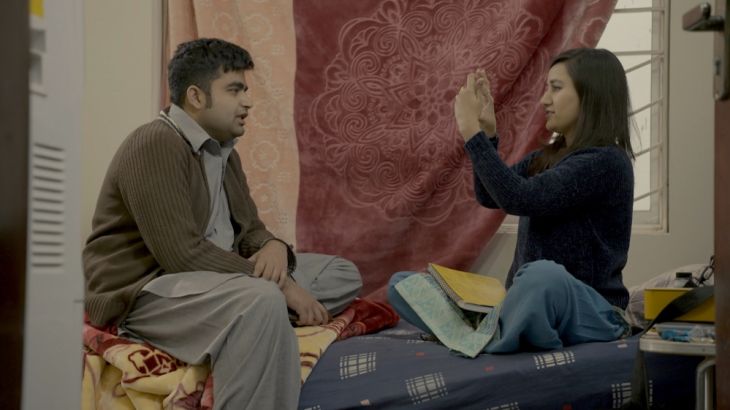
War, Lies and Hashtags: Pakistan’s Twitter Battles
Pakistan’s most notorious digital commander leads his cyber-army to the front line of a propaganda war.
Farhan Virk is a household name in Pakistan’s Twittersphere.
He is one of the country’s most controversial political influencers and claims he can make any hashtag trend nationally.
Keep reading
list of 4 itemsPalestinian life under Israeli occupation: An illustrated guideThis article will be opened in a new browser window
Boeing’s jets turn 70: A timeline of highs, lows and turbulence
US university ties to weapons contractors under scrutiny amid war in Gaza
A hyper-nationalist believed by many to be a state-sponsored troll, Virk commands Team Imran Khan, a Twitter army of more than 1,000 volunteers.
When India-Pakistan tensions flare, Virk mounts an online attack.
His wife, who also leads a giant cyber-army, hatches a plan to infiltrate mainstream news across India.
But how long can this infamous couple survive on the thrill of online propaganda warfare?
With bills mounting, the realities of adulthood are taking hold.
Frustrated with financial instability but unable to give up his power on the internet, Virk comes up with another plan to monetise his digital base.
FILMMAKER’S VIEW
By Hasham Cheema
“We see ourselves as the Pakistani alt-right.” When Virk slipped this very curious piece of information into our conversation, I knew I had found the central character for my documentary.
What I did not know was that in a couple of months, we would be filming with him at the Pakistan-India border at the height of a particularly volatile military escalation between the two countries.
I first met Virk in December 2018. He invited me to his house for a cup of tea and some pakoras – the perfect snacks for a grey Islamabad afternoon. He was the third or fourth interviewee during the research phase of this film.
I wanted my first documentary to be an exploration of social media, nationalism and the mainstreaming of a particularly hateful and divisive brand of populist politics in Pakistan. Virk agreed to walk me through this bizarre world.
With roughly 300,000 followers, spread over two separate Twitter accounts (in case one is suspended) and a team of more than 1,000 volunteers called Team Imran Khan, Virk has carved a unique space for himself on Pakistani Twitter.
To his followers, he is a thought leader. To government ministers, he is an influencer they can mobilise against their rivals, or for any particular cause. To pretty much everyone else, he is a troll who is relentlessly polluting Twitter with nationalist hashtag campaigns.
Virk claims he has trended close to 4,500 hashtags with Team Imran Khan. “A lot of people call me a troll and I used to be a troll, I have no shame accepting that,” he chuckled.
Digitally altered images of politicians, journalists – or whoever is in his bad books – make for a significant portion of these campaigns. What do these campaigns look like? A barrage of unapologetically doctored images, often accompanied by captions that are inaccurate, unverifiable, accusatory and at times defamatory.
Once Virk has decided on a time, he organises the assets (images and captions), shares them with members of Team Imran Khan over WhatsApp and prepares to launch the hashtag attack. Like a swarm of locusts, at a time of their choosing, they descend on Twitter and tweet the images and captions until the hashtag starts trending.
I started filming with Virk in Islamabad, Pakistan, just a few days after a bombing in Indian-administered Kashmir triggered a fresh wave of tensions between the two nuclear-armed neighbours. He was busy with Twitter campaigns aimed at discrediting India’s accusation over Pakistan’s involvement in the attack.
A few days into filming, the unthinkable happened. For the first time in nearly 50 years, India carried out an air attack inside Pakistani territory, claiming to have successfully targeted a “terrorist training camp”.
Pakistani officials claimed only a few trees were damaged in the attack and the whole campaign was an election-year political stunt by Indian Prime Minister Narendra Modi’s government.
Pakistani military soon retaliated, capturing an Indian pilot during a fighter jet dogfight – an incident that Virk and Team Imran Khan thoroughly enjoyed.
The film witnesses the historical confrontation between India and Pakistan through Virk’s world.
I hope that this documentary makes a meaningful contribution to our understanding of nationalism and populism, and ultimately serves as a commentary on the vulnerabilities of social media in young democracies like Pakistan.